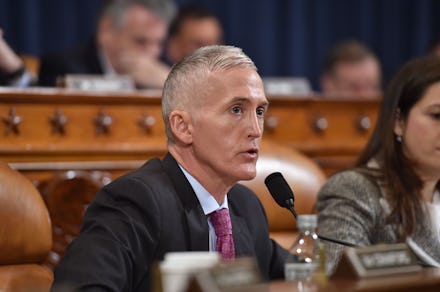Rep. Trey Gowdy just made the case for prosecuting reporters who publish leaks

On Monday Rep. Trey Gowdy (R-S.C.) grilled FBI Director James Comey about the newly revealed investigation into the Trump campaign's ties to Russia. But Gowdy was less concerned with whether or not President Donald Trump was compromised by a foreign power and more concerned with whether or not the government can jail journalists for reporting on it.
"Is there an exception in the law for reporters who want to break a story?" Gowdy asked Comey, referring to United States law that prohibits leaking classified information.
There is, in fact, an exception in the law for journalists who publish classified information, found in the First Amendment, which expressly prohibits any action abridging freedom of the press.
Journalists' longstanding right to report leaked information and protect their sources has been under attack from the nation's top law enforcement officials for some time — including the case of New York Times reporter James Risen, who fought a seven-year legal battle to protect the identity of his source.
The implications of Gowdy's question go much further, suggesting that the government could not only force reporters to reveal their sources, but could actually jail journalists themselves for publishing leaked information.
Comey declined to answer Gowdy's loaded question, saying, "that's a question I know the Department of Justice has struggled with from administration through administration."
Journalists and insiders on Twitter were quick to respond.
Gowdy's question was one of several Republican attempts to shift the focus of Congress' hearing about the FBI's Russia investigation to the issue of government leaks. You can follow Mic's liveblog of the hearing here.